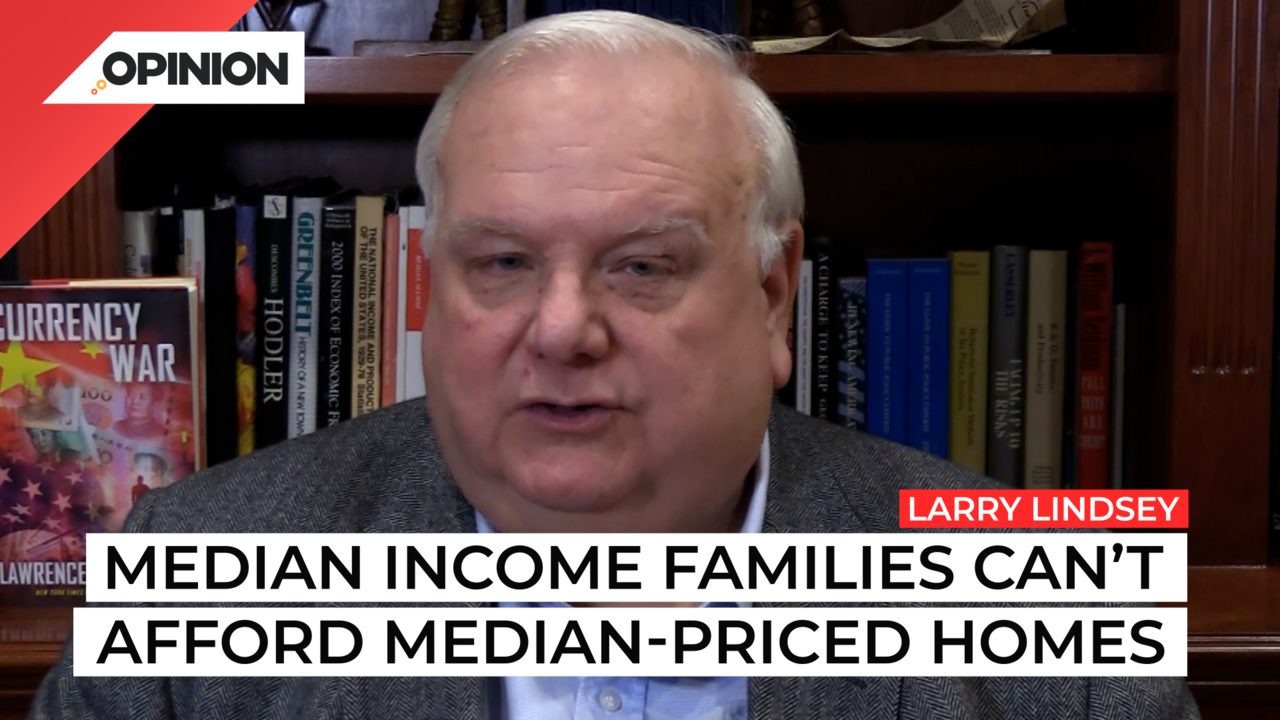
Commentary
-
Our commentary partners will help you reach your own conclusions on complex topics.
Well, we have a lot of bad news hitting our country, but consumer confidence seems to be going the other way. Recently, the conference board came out and said there was another rise in consumer confidence at the end of 2022. Well, it’s a very, very variable indicator. Let me just give you some of their numbers.
Just before COVID hit, consumer confidence scored 133. Then when COVID hit the bottom, it scored just 85, right down about a third. Then the government in March of this year sent out a bunch of stimulus checks, big checks that made everyone much more confident and confidence soared up to 130, almost back to its pre-Covid level. Then inflation hit and confidence dropped down to just 95. Not quite as low, but almost as low as it was during the bottom of Covid. Today it stands at 108.
We’re about halfway back between the bottom of Covid and the peak just before Covid. Well, halfway back is better than nothing, but it still leaves room to go. One of the big problems, of course, was inflation. Now inflation’s coming down a bit, but the inflation indicator in the survey has gone from just four and a half – went all the way up to 8% – and now it’s down to 6.8%. Well, that is some improvement, but there is a way to go and people are very sensitive to a number of indicators in viewing how much inflation we’re gonna have.
One of the big ones is gas prices. Gas prices, which had hit close to $5, they’re now down to just over $3. They were $2.12 in January of 2021 for comparison. But oil prices have come down a lot. It’s not sure they’re gonna stay there. A lot of people that I trust who look at this carefully predict that gasoline or rather oil prices, are going to go up to about a hundred dollars a barrel. This will add between 60 cents and a dollar to current gas prices. That is almost certain to depress confidence going forward.
Another area of concern is home prices. Not only did home prices go up a lot, but mortgage interest rates did as well. The National Association of Realtors has an index of affordability for home prices. It’s how much of a median-priced home can be afforded by a family with median income. So that indicator a year ago used to be 143, meaning a median-income family could buy a house that was 143%, or 43% more than the median. That’s great; typical family can buy more than a typical home. That has now plunged to an indicator just 91, meaning that a median-income family can’t afford a medium-priced home, just nine tenths of a median-priced home.
That is certainly depressing home sales quite a bit. They have fallen from six and a half million to just 4.1 million over the last year. That is going to be a continuing headache for consumer confidence. And when you can’t buy a house, you also really can’t buy the refrigerator, the air conditioner, and the major appliances that come with buying a home. And so confidence in buying big-ticket items like those, as well as automobiles, is down significantly.
So what does confidence look like in the year going forward? I think it’s going to be volatile just like it has been in the last two years. We’re going to get good news and bad news. I think the home price problem and the high prices of a lot of big-ticket items will continue and I think gas prices will rise. On the other hand, I think our overall wages are going to beat overall inflation. So I would predict that as the news comes in, on net, we’re going to see very little change in consumer confidence, roughly about 108, which is what it is today, throughout next year. But expect it to go up and down as the year goes on.
-
Election 2024 will boil down to the Great Lakes states
Pollsters and pundits have been engaged in a long debate about how Biden or Trump might win the 2024 election, with much of their focus spent on the “swing state” electoral battlegrounds. While the winners of Alabama or California may be obvious, for instance, who wins Pennsylvania is a more difficult question. Watch the above… -
Why the Fed should consider Theory of Reflexivity when fixing policy
The Theory of Reflexivity, often used in the context of economics and financial markets, implies that investors don’t base their decisions on reality but on their perceptions of reality. This creates a feedback loop where investors’ perceptions influence economic fundamentals, which in turn alter investor perceptions. Watch the above video as Straight Arrow News contributor… -
Federal Reserve surpassed its own wildest expectations
On May 14, the U.S. Bureau of Labor Statistics released the most current producer price index (PPI) report, which showed an increase of 0.5% month-over-month in April. After the report’s release, U.S. Federal Reserve chairman Jerome “Jay” Powell said that while he believes the current policy rate is restrictive by many measures, the Fed needs… -
Polls give slight advantage to Trump in Electoral College
With the U.S. general election only six months away, leading candidates President Joe Biden and former President Donald Trump appear to be engaged in a very close contest. In their 2020 race, the winner of the Electoral College was ultimately determined by a relative handful of voters in just a few swing states, even though… -
College sports is big money but not everyone benefits
March Madness has wrapped up and Caitlin Clark has emerged as a household name as well as a wealthy student athlete. Earning over $3 million throughout her college career, her success stands in stark contrast to the previous notion that collegiate athletes shouldn’t earn anything beyond their scholarship. Straight Arrow News contributor Larry Lindsey examines…
Latest Opinions
-
 Reuters
Reuters
LeBron James first to reach 50k points, shows no signs of slowing down
-
 Getty Images
Getty Images
Trump admin seeking to sell nearly 450 vacant, underused federal spaces
-
 Getty Images
Getty Images
US stops intelligence aid to Ukraine amid overnight Russian attacks
-
 Getty Images
Getty Images
Gene Hackman’s dead dog misidentified as details continue unfolding
-
 Getty Images
Getty Images
Sexual violence used as war tactic against Sudanese children: UNICEF
Popular Opinions
-
In addition to the facts, we believe it’s vital to hear perspectives from all sides of the political spectrum.






